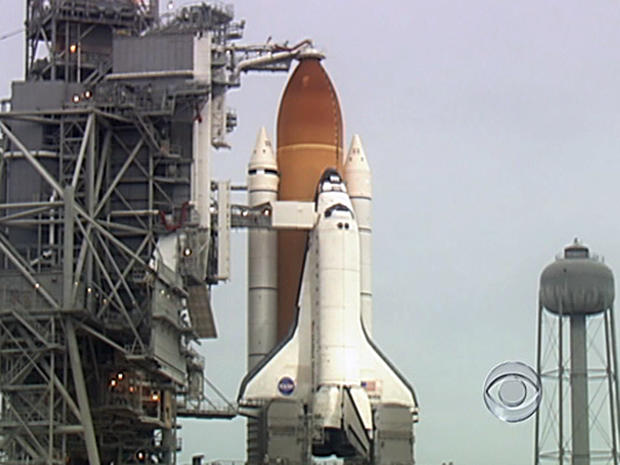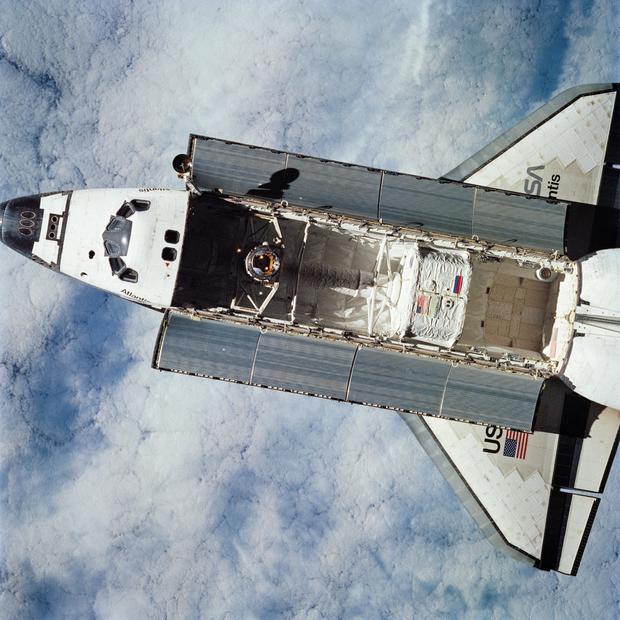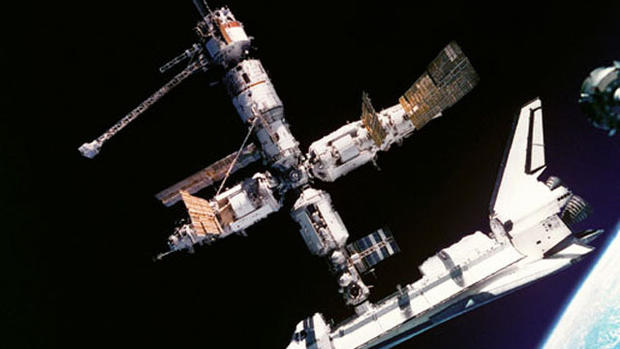Could NASA be on the chopping block?
As NASA prepares for the final launch of the space shuttle, it finds itself in a potentially troubling spot. As Washington works to cut spending, without a storied space vehicle, one could ask: is the space program worth it?
NASA has an annual budget of some $18 billion. That spending includes $4.5 billion on "science"; $3.7 billion on "exploration"; $3 billion on "cross-agency support" and $6.1 billion on "space operations."
The agency has no replacement for the shuttle, so to continue manned space operations, including trips to the International Space Station, NASA will rely on its partnership with Russia to ferry astronauts into space, and potentially on commercial spacecraft. NASA predicts it will save over $2 billion by not operating the Space Shuttle, though that money will be allocated to other programs, including working with the private sector toward development of a shuttle replacement.
After Atlantis launch, what's next for NASA?
Shuttle's elevator crew ponders uncertain future
At a time when the government faces annual deficits over a trillion dollars and a debt at $14 trillion and rising, should NASA's nearly $20 billion be on the chopping block? No, says Tea Party backed freshmen Senator Marco Rubio, who's home state of Florida is home to Cape Canaveral and the Kennedy Space Center, the birthplace and launching point of the space shuttle.
"The impact of our space program is a global phenomenon," said Rubio speaking on the Senate floor today. "Our space program inspired young generations of Americans to pursue careers in the aerospace industry and other related fields. Satellite technologies developed and improved by NASA now connect the world in unprecedented ways and support our military reconnaissance missions and facilitate travel through G.P.S. devices. For others, it got them hooked on math and science and let them to other fields whose innovations make our lives better every single day."
Rubio's Florida has seen a huge economic boom from the space program. According to the Congressional Research Service, the shuttle program employs over 2,000 civil servants with more than 15,000 people employed by contractors. The program has at least 4,000 suppliers located around the country.
And according to a study conducted earlier this year by Florida State University, there are over 147,000 jobs related to the aerospace industry in Florida alone, 51,000 are direct jobs and 95,000 are indirect or induced jobs due to the industry. Those jobs bring in 8.3 billion in income.
Though Rubio and many others ran for Congress on a pledge to cut government spending, even without the space shuttle, which has defined the American space program for over 30 years, the senator says NASA is an important investment, even if it too has to live within its means.
"You see, whereas America once led the way to the moon, we now face the unacceptable prospect of limited options to simply get a human into orbit," Rubio said. "We know that our commercial space partners are working to fill some of the gap in our human space flight capabilities, and that is a promising development that we should encourage."
"But we need NASA to lead," he added. "And I say this, I fully recognize that our nation faces a debt crisis because, quite frankly, politicians in both parties have spent recklessly for many decades, and it will require Washington to finally live within its means and for leaders to make tough choices about what our nation's priorities are. NASA is no exception. It will not be about spending more. It will be about spending wisely."


